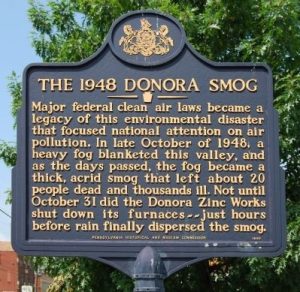Posted on August 14, 2023 by Steven Miano
I recently had the opportunity to speak at a State University of New York (SUNY) conference for a group of exceptional primary and high school Science, Technology, Engineering and Math (STEM) teachers. These teachers are part of a highly selective program sponsored by the State of New York called the Master Teacher Program. The program is geared toward enhancing educational opportunities for approximately 1400 teachers selected for the program across the state. My presentation was titled: Environmental Disasters that Led to Environmental Laws. My goal was to help these teachers incorporate environmental issues more fully in their curricula. It was refreshing to me to be able to speak to an audience dedicated to educating our children. Lawyers do important work, teachers do truly outstanding work.
This presentation reminded me of how our environmental laws in this country have been enacted. As many of us know well, most major federal environmental laws were enacted on the heels of major environmental disasters. Take for instance: the burning Cuyahoga River that led to the Clean Water Act; the disastrous air pollution incident in Donora, PA that led to the passage of the Clean Air Act; the discovery of Love Canal that lead to the passage of Superfund; and most tragically, the chemical gas release in Bhopal, India that lead to the passage of EPCRA.
It seems that Congress has a very long history of failing to pass meaningful environmental laws before a significant environmental disaster finally focuses it (some would say due to pressure by the public), on protecting public health and the environment. No one can honestly debate the positive effect of these laws on changing our lives for the better. Having seen the unquestionable benefits of these statutes, why is Congress so unable to proactively deal with environmental issues?
Extreme partisan politics over the last several years have stymied meaningful movement on addressing climate change. Efforts to advance alternative energy technologies (wind, solar, etc.), and implementing corporate measures to stem climate injuries are derided by some as “woke”. On the other hand, those demanding unrealistic immediate zero carbon emissions have made engaging in a non-partisan dialogue on how to move the needle on addressing climate changes more difficult. So what’s next?

Being a somewhat “glass half empty” sort of guy, I can’t help but ponder, as many us do, that we now stand on the precipice of a truly disastrous set of environmental circumstances stemming from climate change. The past year has seen unprecedented droughts in the western part of the country, severe storms and flooding in the east, breathtaking heat in many parts of the country, 100 degree water temperatures in parts of the ocean, and huge snowfalls in other parts. Some argue this is all just part of a cycle. Others argue this is a trend and not a cycle.
If Congress’s past history of addressing environmental issues in a meaningful way is any indication, it will take more than the current climatic changes to enact climate change legislation. Time will tell. Of course, some argue time is not necessarily on our side.
Much of the above may not be news to Fellows of the College. However, it seems important to me that our educators and our students understand the history behind the enactment of most environmental laws. Most of them were not yet born at the time of these events. Moreover, it is important that they understand, and for us to remember, that meaningful laws do make a meaningful difference.

